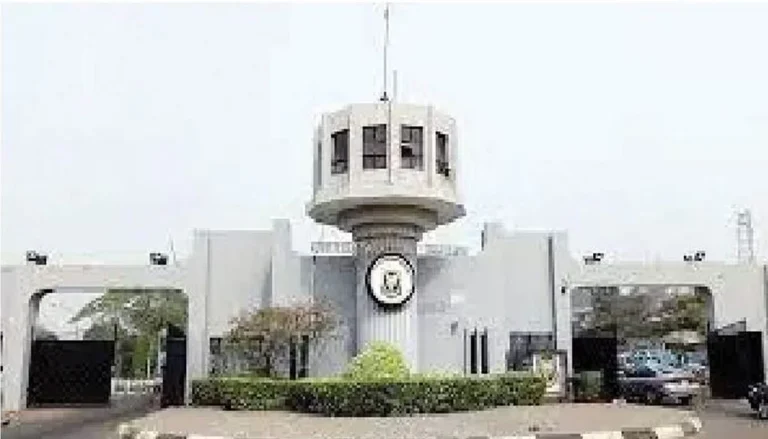
The descendants of slaves from sub-Saharan Africa created the spiritual music of Morocco known as Gnawa.
The Gnawa master plays the main guitar-like instrument, the ghembri, and is at the centre of the stage as the ritual poetry and dance unfold.
Until Asmâa Hamzaoui came along, the role of Gnawa master was always held by a man in the deeply patriarchal society.
Her Gnawa master father wanted a son to carry on the family’s legacy of ghembri playing. However, Rachid al-Hamzaoui had no sons, only daughters, one of whom was especially cunning and gifted.
This meant that Hamzaoui was ultimately an outlier. She’s become a major figure in the Moroccan and international Gnawa scene, which was once dominated by homeless musicians and beggars but is now experiencing a renaissance.
In 2012, she made her live performance debut at the Essaouira Gnawa Music Festival, held in the city’s historic quarter and considered the spiritual centre of the Gnawa people.
There was a lot riding on my shoulders. At first, it was the instrument itself, which had belonged to my dad. I had to stick to the high-quality repertoire he had taught me. Hamzaoui, who headlined the festival once again this year, said, “I needed to play them correctly.”
And it was nerve-wracking, because this was the first time a woman had ever performed Gnawa music on stage.
The Gnawa are a people of Morocco whose precise population is unknown, but who have been traded as slaves since at least the 16th century.
UNESCO, the United Nations’ cultural arm, inscribed their musical and cultural traditions as part of the “Intangible Cultural Heritage of Humanity” list in 2019.
According to Unesco, gnawa “is first and foremost a Sufi brotherhood music combined with lyrics with a generally religious content, invoking ancestors and spirits.”
Gnawa culture is acknowledged as an integral part of Morocco’s complex identity.
“The Gnawa, particularly in the city, practise a therapeutic possession ritual through all-night rhythm and trance ceremonies combining ancestral African practises, Arab-Muslim influences, and native Berber cultural performances,” Unesco explains of the Gnawa.
However, the elders of the community are concerned that the rising stardom of Gnawa music and culture is encouraging many young artists to abandon the spiritual asceticism at the community’s core for the pursuit of fame and fortune on the festival circuit.
Naji al-Sudani is one such sage; he runs a tiny shop out of the way where he makes drums and highly sought-after ghembris. The steady stream of Gnawa performers who visit his tiny shop to sit with him and ask for his blessings before taking the stage attests to his legendary status in the community.
His name suggests that his ancestry originates in Sudan. Modern-day Guinea is alluded to by the name of another legendary Gnawa master.
“Having women performers could be good, but the main issue for the youth in general is humility — modesty, understanding the culture of transmission from elders, and respecting it,” said Sudani, who is a maâlem, master musician.
You can’t claim maâlem status merely because of your title. He further explained, “You become a maâlem over the years, by learning from the masters.”
However, given the current state of Morocco’s economy, some people, like Hamzaoui, are hoping the music will also help them escape material deprivation.
Only my sister and I help support our family at home. All of the bills, including our own, are footed by us. I have a son and bills to pay,” Hamzaoui explained.
The Essaouira Festival has expanded from its original focus on Gnawa music to include other musical styles in recent years.
Suleiman Hakim, a renowned musician of African American descent, has been attending the festival since its inception in 1998.
According to him, many of the fundamental sounds in American jazz and blues can be traced back to Gnawa music.
Since the Gnawa sounds and other African-derived sounds share a common heritage and history, “that’s part of why it lends itself so well to fusions,” he said.
Gnawa purists sit alongside curious tourists at this festival.
This year, Fehd Benchemsi, a well-known actor and singer in Morocco, brought his band, the Lallas, to perform.
“The festival has changed a lot over the years, but many of us still come to connect with the Gnawa masters – Essaouira is the heart of Gnawa culture,” he said.
Like a pilgrimage, a visit here can have profound spiritual significance for some people, while for others the emphasis is on the celebratory aspects of song and dance.
Young Moroccans like Benchemsi, who were not raised with Gnawa traditions, are increasingly embracing Gnawa culture because they are attracted to its music, dance, and festivals as well as its deeper spiritual meaning.
In doing so, it celebrates the heritage of a group that has been historically marginalised in a society where Arabs hold sway over the reins of power, reflecting Morocco’s recognition of its ties to sub-Saharan Africa.









Wow, superb blolg layout! Howw long have you bern bloggging for?
yyou make bloggihg look easy. Thee ovrall lokk of yoour sige iis wonderful,
leet alone the content!